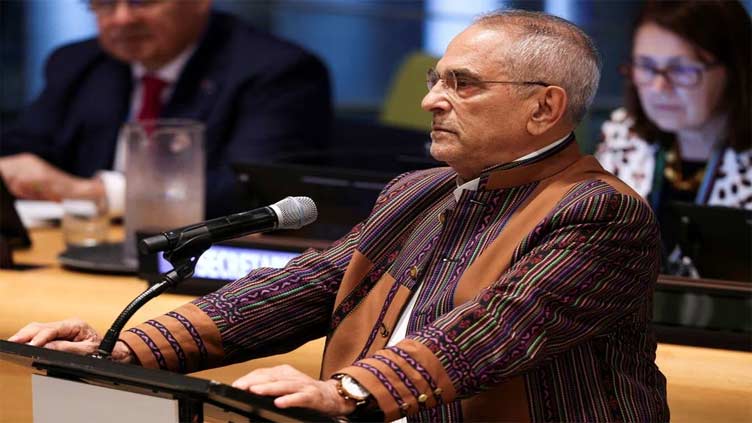Exclusive: Timor president says China military cooperation 'never discussed'

World
East Timor aims to join the Southeast Asian regional bloc ASEAN by 2025
SYDNEY (Reuters) - East Timor has not discussed military cooperation with China in its upgrade of diplomatic ties, President Jose Ramos-Horta said, adding Australia and Indonesia can "sleep at peace" because the island nation won't be a security concern to its neighbours.
China's increasing assertiveness in efforts to form security ties with developing countries in close proximity to Australia have raised alarm bells in Canberra, and a recent shakeup of Australia's defence has refocused on protecting its northern approaches.
A Comprehensive Strategic Framework signed by East Timor during a meeting between Prime Minister Xanana Gusmao and China's President Xi Jinping in China last week covered development cooperation in agriculture and infrastructure, the Nobel laureate said in a telephone interview with Reuters.
The agreement also provided scope for funding from China including government and commercial loans to East Timor, he said.
/cloudfront-us-east-2.images.arcpublishing.com/reuters/IALN6FDUCVMSJKB5SX4NN5TSXM.jpg)
"Right now we don't have a single loan from China," he said. "In the future we might request a loan from China ... We will not accept any unmanageable, unsustainable loan with too high interest payment."
Some Australian politicians expressed concern after China's state media reported on Saturday that Beijing's agreement with East Timor, around 700km (450 miles) north-west of Australia, also covered military exchanges.
China struck a security pact with Solomon Islands, 2,000km (1,200 miles) to Australia's north-east last year, heightening Canberra's wariness about Beijing's naval ambitions.
"It was never discussed in terms of military cooperation, never discussed, and the Chinese side also never raised this issue," Ramos-Horta said.
East Timor, also known as Timor Leste, aims to join the Southeast Asian regional bloc ASEAN by 2025 as it seeks to reduce high poverty rates.
"We would never bring in a foreign element into Timor Leste that would be viewed by the rest of ASEAN as endangering ASEAN policy of neutrality or peace and security," he said.
"Indonesia and Australia, we can include Singapore and Malaysia they are the countries that are closest to us, can always sleep at peace - Timor Leste is not going to be a nuisance, a concern in terms of security."
Timor has extensive security cooperation with Australia, which is also its top aid donor, with Canberra providing military and police advisers and patrol boats, he said. "This is so far only with Australia," he said.
China's support was primarily in infrastructure including government buildings, finance, agriculture and health, he said.
A large delegation of Chinese companies arrived in East Timor's capital Dili on Thursday to continue discussions on potential investment in oil and gas projects, he said.
The main focus for East Timor is finalising a joint venture agreement with Australian company Woodside Energy for the joint development of the Greater Sunrise gas project, he said.
East Timor is looking to start producing natural gas from its Greater Sunrise fields around 2030, which will be critical to the Southeast Asia island nation's economy.
Australia has appointed an envoy to speed up negotiations between East Timor and Woodside; Gusmao's government wants gas to be piped to East Timor and not Australia.
Ramos-Horta said food security remains a major issue for East Timor, 22 years after gaining independence from Indonesia, and it needed investment in irrigation and roads, and to provide financial incentives to farmers to "feed its people".
Australia, as one of the world's most developed agriculture nations, should commit funds and technology to the UN's International Fund for Agricultural Development, along with European nations and the United States, to address the agriculture challenges being posed by climate change to small farmers globally, he said.
"Otherwise we are heading to human tragedy in years to come," he said.
At the Global Citizen Festival in New York last week, Ramos-Horta also supported calls for a fossil fuel non-proliferation treaty, backed by six Pacific Islands countries, that puts pressure on Australia as a major coal exporter.
The Australian public "have been our best friends", he added.

